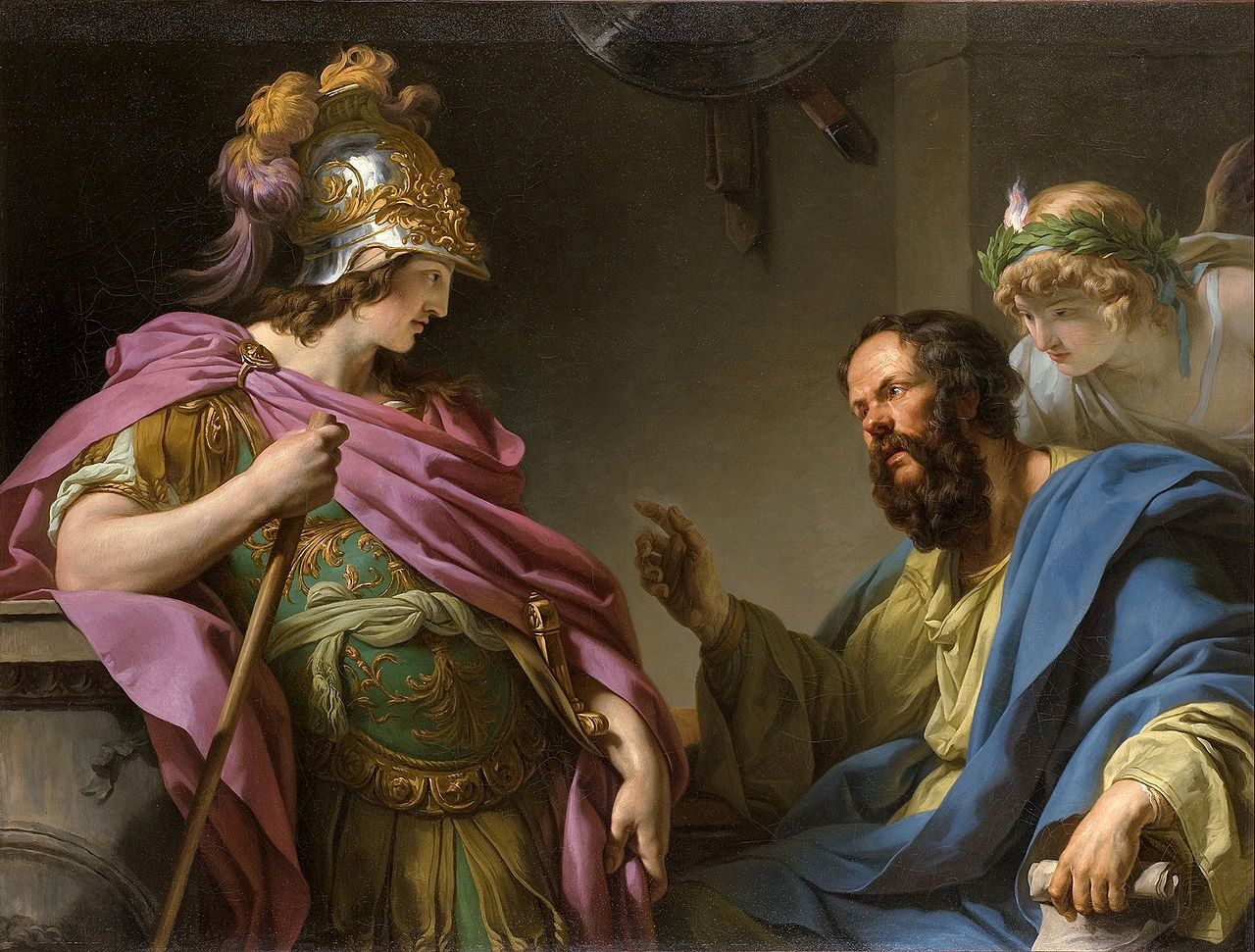
“Alcibiades being taught by Socrates” by François-André Vincent is a painting that has always captured my imagination. The vibrant colours, intricate details, and sumptuous clothing of the figures depicted immediately drew my eye and held my attention. And with the advent of postmodernism, which challenges the notion of fixed and objective meanings, I figured I might as well take a shot at interpreting this intriguing work of art! After all, in a world where the meaning of a painting is absent of a ‘master interpretation’ the possibilities for interpretation are endless. So let’s dive in and explore the myriad ways in which this painting might be understood and appreciated.
The image itself is striking, with Alcibiades depicted as a young and attentive student sitting at the feet of Socrates, who is gesturing towards the heavens with one hand and holding a scroll in the other. The body language of both figures suggests a sense of focused attention and engagement, rather than argument or disagreement. As I looked at the scene, I couldn’t help but feel a sense of intellectual and spiritual pursuit from these two giants of the great European story, Socrates the grand philosopher is teaching Alcibiades about the mysteries of the universe and the principles of ethical behaviour.
When it comes to the pursuit of wisdom and virtue, there’s always been a debate about whether these qualities can truly be taught or must be acquired through personal experience. Socrates, the great philosopher and mentor to Alcibiades in the painting, was a strong advocate for the power of self-reflection and critical thinking in attaining true wisdom. He believed that knowledge gained through rote learning or memorization of facts was superficial and incomplete.
Socrates is depicted imparting his knowledge to the young Alcibiades through conversation and guidance. The painting thus raises significant questions about the role of a teacher and the nature of learning. Can wisdom truly be taught, or is it something that must be discovered through personal experience and self-reflection? And what is the role of a mentor or teacher in guiding their students towards these important qualities?
As we gaze upon the painting, we can’t help but ponder the contrasting qualities of the two central figures. Alcibiades, with his charm, political savvy, and military might, was a force to be reckoned with in ancient Athens. But he was also known for his questionable personal conduct and his tendency to prioritize his own interests above those of the state. Socrates, on the other hand, was a wise philosopher, committed to truth and self-examination, and with a reluctance to engage in political activity.
This juxtaposition raises an important question about the relationship between effective leadership and moral and ethical excellence. Can a leader be both powerful and virtuous, or must they prioritize one over the other? The painting suggests that this tension may exist, provoking us to contemplate the nature of power, responsibility, and the pursuit of the common good. And yet, as we study the painting, we notice that between the two figures themselves, there is no tension. Instead, we see Socrates calmly teaching Alcibiades, who appears attentive and engaged in the pursuit of knowledge and moral excellence. This contrast between the tension of their roles in society and the harmony of their interaction in the painting invites us to reflect on the complex and nuanced nature of human relationships, and how we might reconcile seemingly conflicting values in our own lives.

